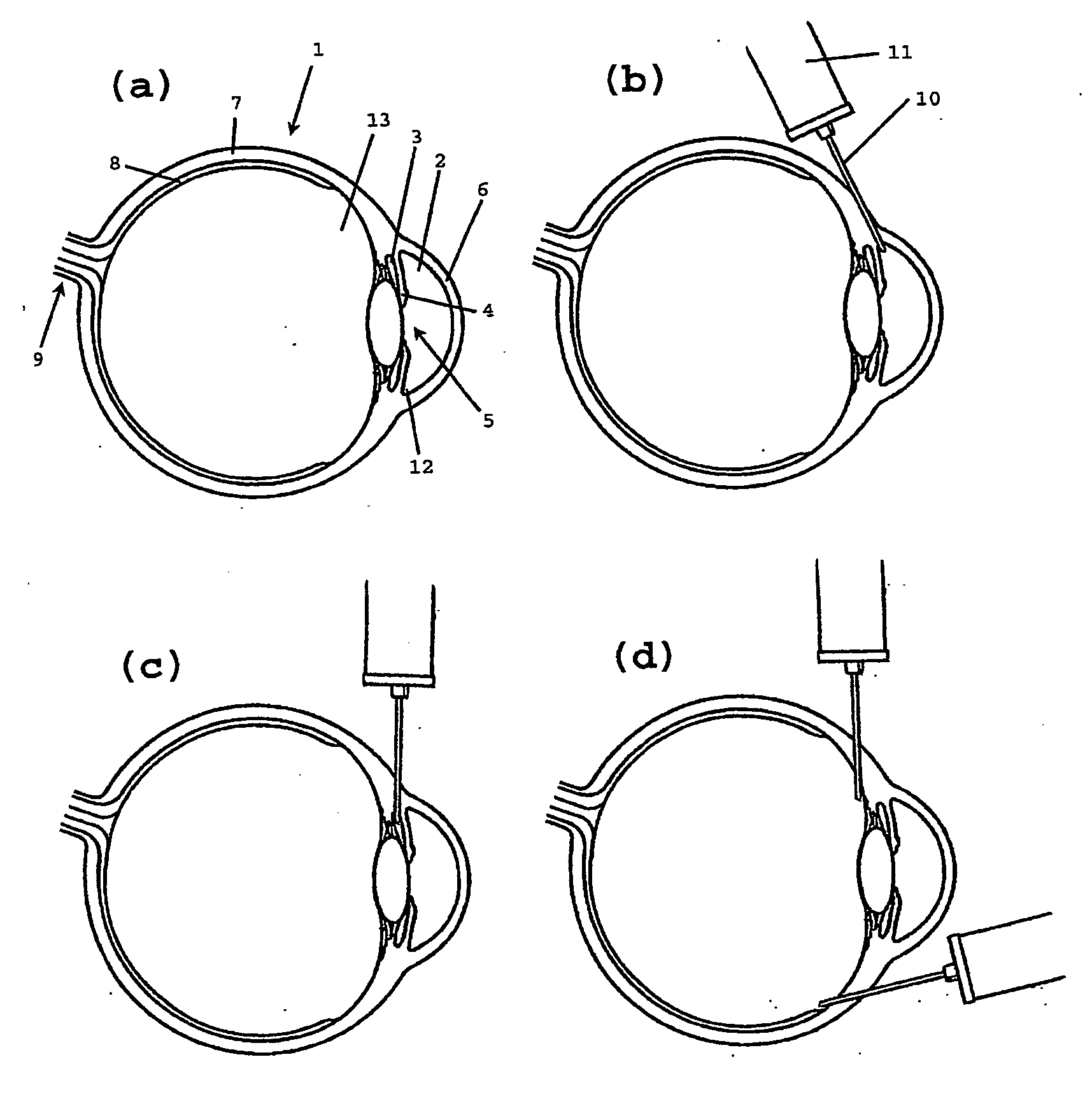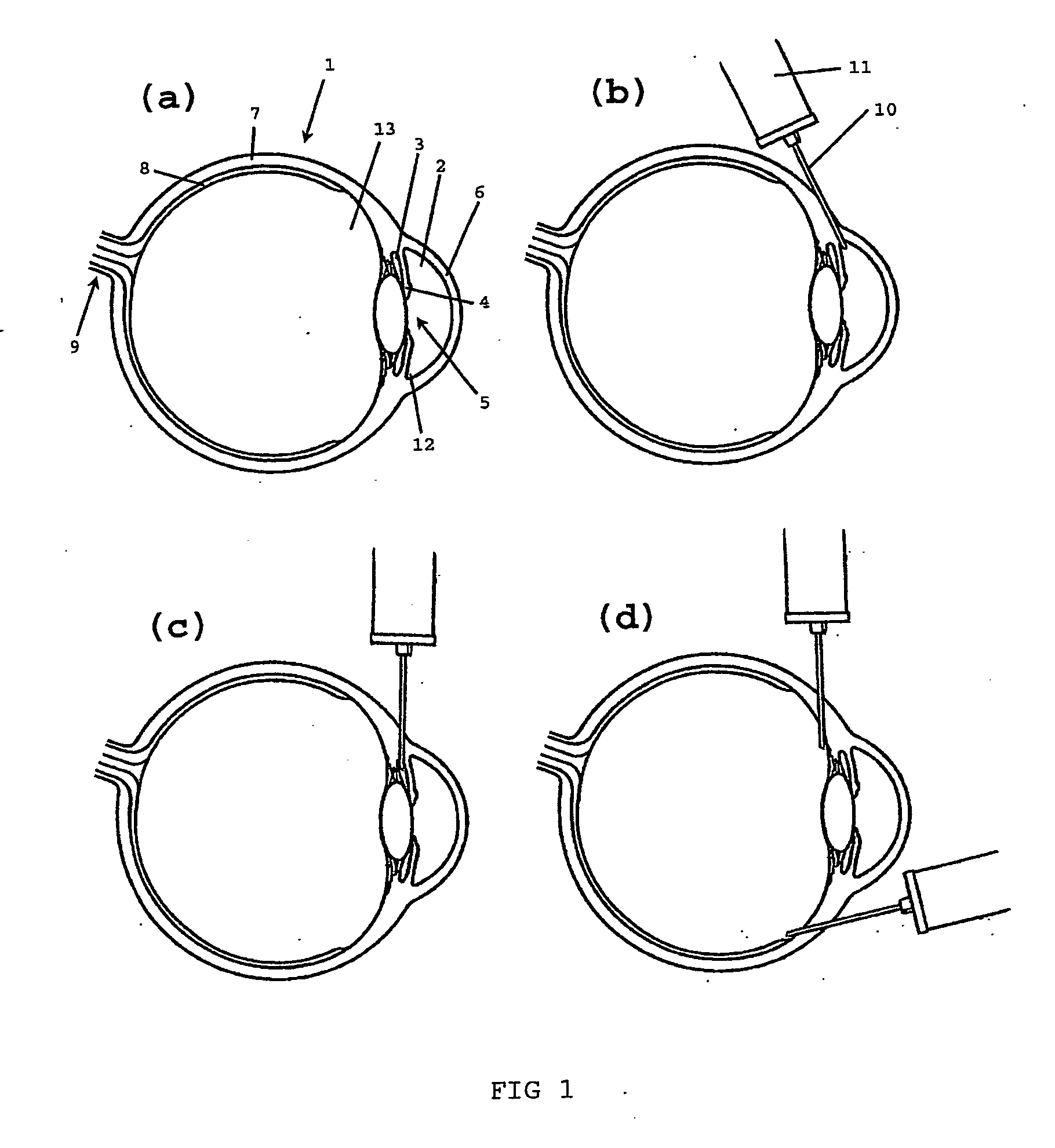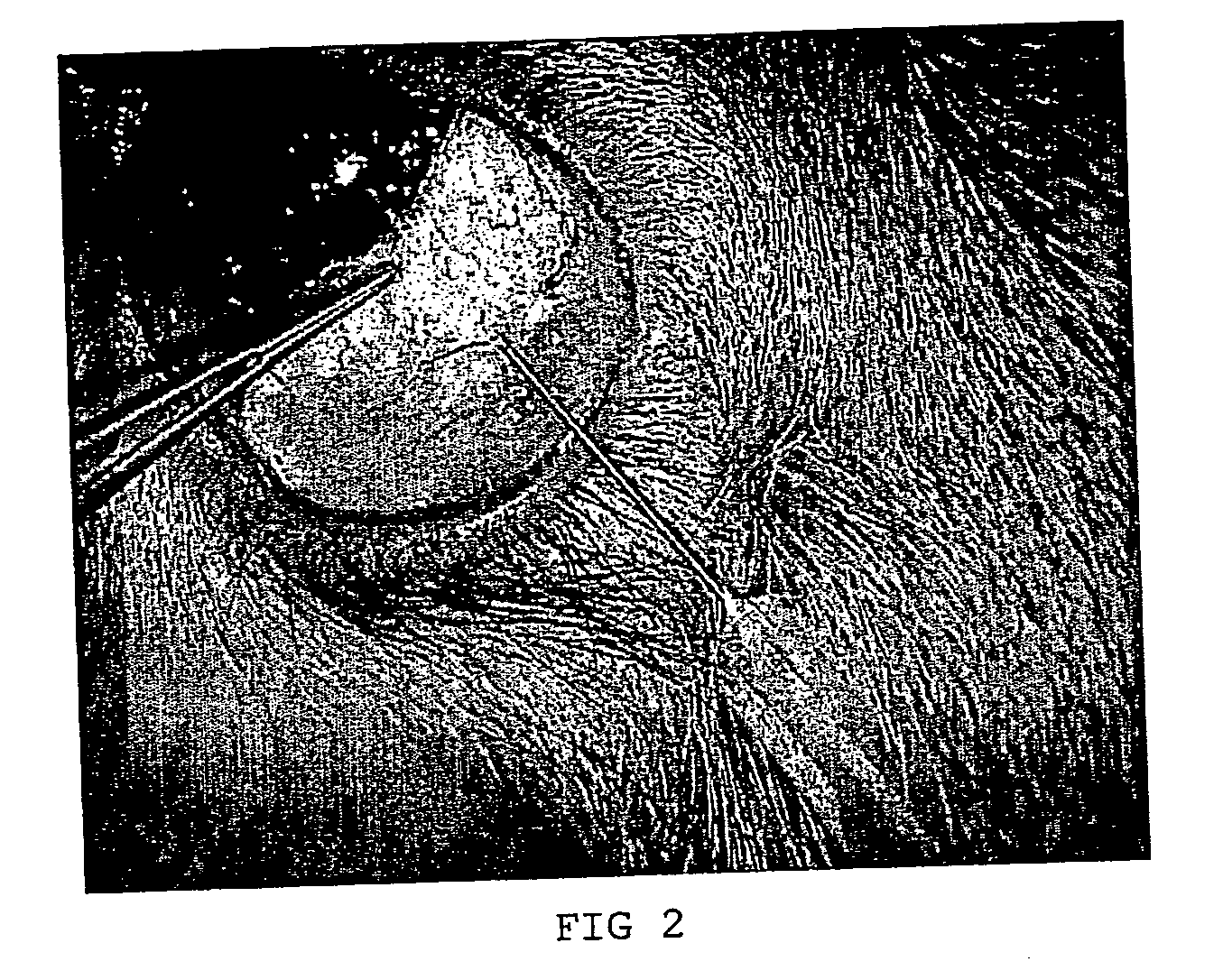Use Of A Viscoelastic Composition For Treating Increased Intraocular Pressure
a technology of viscoelastic composition and intraocular pressure, applied in the field of medicine, can solve the problems of damage to the optic nerve, complicated and time-consuming, difficult and time-consuming procedures, etc., and achieve the effects of avoiding drawbacks and/or complications, increasing intraocular pressure, and rapid and cost-effectiveness
- Summary
- Abstract
- Description
- Claims
- Application Information
AI Technical Summary
Benefits of technology
Problems solved by technology
Method used
Image
Examples
example 1
Preparation of Non-Animal Stabilized Hyaluronic Acid
[0098] As previously exemplified in e.g. U.S. Pat. No. 5,827,937, 10 g of hyaluronic acid prepared by fermentation of Streptococcus was dispersed in 100 ml of 1% NaOH, pH>9. Cross-linking agent in the form of 1,4-butanediol diglycidyl ether was added to a concentration of 0.2%. The resulting composition was incubated at 40° C. for 4 h.
[0099] The incubated composition was diluted with an acidic water solution to reach neutral pH under mixing, yielding a final hyaluronic acid concentration of 20 mg / ml, and again incubated for 12 h at 70° C. The viscoelastic slurry that resulted from this second incubation was then cooled to room temperature and mashed to its final particle size, approximately 0.8 mm.
example 2
Pre-Clinical Study of Non-Animal Stabilized Hyaluronic Acid in a Rabbit Eye
[0100] The objective of the study is to show that injections of a viscoelastic composition, such as non-animal stabilized hyaluronic acid, in the eye will provide a functional drainage model for glaucoma treatment.
[0101] 18 rabbits divided in three groups were used in the study. The rabbits were anesthetized according to standard procedures. The composition, 20 mg / ml of the non-animal stabilized hyaluronic acid obtainable by the method of example 1 (commercially available from Q-Med AB, Uppsala, Sweden), was injected in one eye and the opposite eye was the untreated control. As shown in FIG. 1b and FIG. 2, an approximately 5 mm long fistula was created with a needle in the sclera by penetrating the conjunctiva and moving the needle through the sclera to the angle of the anterior chamber. The composition was injected into the sclera of the eye during withdrawal of the needle, thereby filling the fistula with...
example 3
Pre-Clinical Study of Stabilized Hyaluronic Acid in a Rabbit Eye
[0105] Rabbits are anesthetized according to standard procedures. The compositions used are slurries containing stabilized hyaluronic acid gel particles with a hyaluronic acid concentration of 10, 30, and 50 mg / ml, respectively. The compositions are injected in one eye and the opposite eye is the untreated control. In each slurry, a major volume of the particles are approximately 0.1, 0.4 and 0.8 mm, respectively.
[0106] 1-3 fistulae per eye is (are) created with a needle in the sclera by penetrating the conjunctiva and moving the needle through the sclera to the anterior (FIG. 1b) or posterior chamber (FIG. 1c). The composition is injected into the sclera of the eye during withdrawal of the needle.
[0107] The amount of composition used, size and type of needle and injection site is recorded. The injection site is checked visually before and after injection.
[0108] The animals are observed daily according to standard p...
PUM
| Property | Measurement | Unit |
|---|---|---|
| Pressure | aaaaa | aaaaa |
| Viscoelasticity | aaaaa | aaaaa |
Abstract
Description
Claims
Application Information
 Login to View More
Login to View More - R&D
- Intellectual Property
- Life Sciences
- Materials
- Tech Scout
- Unparalleled Data Quality
- Higher Quality Content
- 60% Fewer Hallucinations
Browse by: Latest US Patents, China's latest patents, Technical Efficacy Thesaurus, Application Domain, Technology Topic, Popular Technical Reports.
© 2025 PatSnap. All rights reserved.Legal|Privacy policy|Modern Slavery Act Transparency Statement|Sitemap|About US| Contact US: help@patsnap.com



